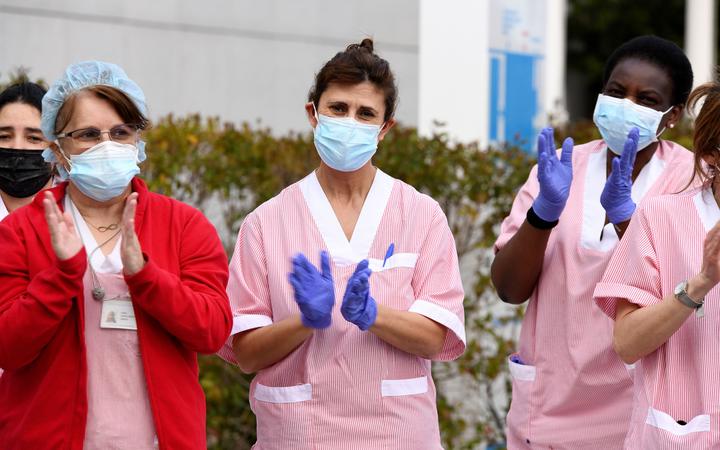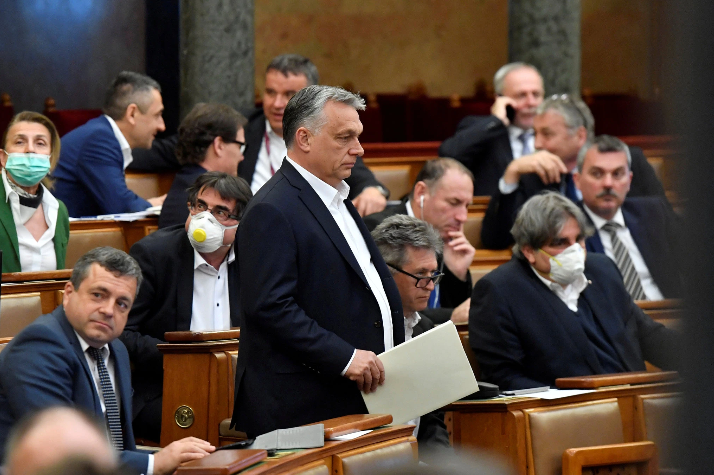In the wake of the COVID19 outbreak, we are confronted with a globally massive threat to our health, where unparalleled measures are being proposed and enacted to counter it. We are chronicling in real-time the heroic actions of those in the field who are putting their lives on the line to make a difference coupled with heartbreaking stories of loss, separation, and suffering.
Medical personnel on the frontlines of this pandemic in my home country Spain are succumbing to illness at an astonishing rate. Currently, Spain is hobbled with the highest COVID19 caseload in all of Europe and reportedly ranks only behind the United States worldwide in terms of sheer numbers of those infected.

The legendary Nobel laureate Albert Camus had extensively researched the “Black Death” and other diseases that had ravaged nations and empires throughout history. He looked at examples in Europe and China. However, his research was also intimately informed by the typhus outbreaks in his own Algeria. His masterpiece The Plague, in his biographer Alice Kaplan’s words, “was inspired by the 1940s—i.e., by the Nazi Occupation. The Plague used the story of a city beset by disease to express a vision beyond the absurd: the possibility of solidarity in the struggle against evil, the power of friendship and community.”
The text serves as a reminder of what is at stake and how our democracies might be altered when we emerge from this crisis. Camus’ novel was above all a response to how European societies reacted when suddenly faced with such a seemingly unstoppable force at their doorstep. The story has been read as an allegory about the reactions of the French people during WWII, ranging from those who collaborated with the Nazi regime to those that courageously decided to resist.
Camus’ underlying message is always relevant but even more so at a time of a global emergency when populations’ fears and anxieties are exploited by leaders who seize the opportunity to weaken democratic institutions that serve as a check to their power. That liberty violations occur in the face of security threats (whether real or imagined) is not new and the German Reichstag (Parliament) fire of 1933 should serve as an unmistakable lesson drawn from the past. Hungary’s prime minister, Viktor Orban, is now governing by decree, without a predictable deadline to the state’s declared state of emergency. Orban’s party was also able to get a law approved in the Parliament under the guise of combating misinformation, opening the door to the persecution of dissenting journalists. Over the last few weeks, Vladimir Putin has planted Russian cities with thousands of new surveillance cameras. Will these be removed once the pandemic is defeated?

It goes without saying that not only fragile and emerging democracies, such as those in Eastern Europe, are destabilized by the added threat of an authoritarian drift in the wake of the COVID19 crisis. A recent survey showed that a sizable number of US citizens are willing to consider truncating core civil liberties if it serves to fight this health emergency. For instance, more than 85% polled would consent to ban noncitizens from entering the country and 78% to conscripting health-care professionals to work despite risks to their health.
Camus understood that unchecked, unquestioned power would spiral out of control like a vicious plague leaving people with no defenses to fight against it. Reading Camus in the times of the present global pandemic teaches us a precious lesson: to be alert and prepared to stand with and up for scientists looking for a cure, for our medical professionals treating the sick, and for the well-being of every person. We should also not lose sight of our support for democratic principles based on compassion and reason over narrow national divisions, xenophobia, and the temptation of authoritarian solutions.
In Spain, a popular tune from the 80s is being revived by confined residents who sing it from apartment balconies and windows: Resistiré (I will resist). It captures the mood of a nation besieged.
Please stay healthy, informed, and engaged.
Alejandro Baer, Ph.D., is an associate professor of sociology and the Stephen C. Feinstein Chair and Director of the Center for Holocaust and Genocide Studies.

Comments